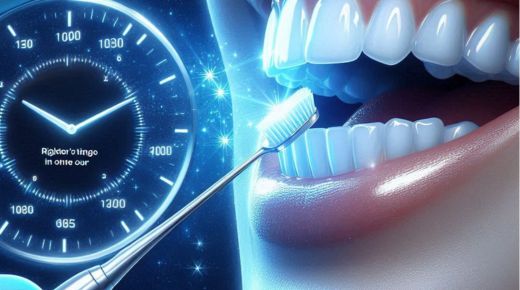Maintaining oral health is crucial for overall well-being. Common dental problems can disrupt daily life if not addressed promptly. Tooth decay, gum disease, and oral infections top the list. Tooth decay occurs when plaque builds up, damaging the enamel. Gum disease involves inflammation and infection of the gums, potentially leading to tooth loss. Oral infections can result from untreated cavities or gum disease, causing severe pain and discomfort. Your general dentist plays a vital role in managing these issues. Regular check-ups and cleanings prevent problems before they start. Treatments like fillings and deep cleanings address existing concerns effectively. For more advanced cases, dental crowns in Lincoln, NE restore damaged teeth to their natural function. Emphasizing routine care after treatment ensures long-lasting results. By partnering with your dentist, you maintain a healthy, confident smile and improve your quality of life. Keep reading to discover how dentists tackle these common challenges.
Understanding Tooth Decay
Tooth decay is a common issue that affects people of all ages. It starts with plaque build-up on the teeth, which is caused by bacteria. These bacteria feed on sugars and release acids that erode the enamel. Over time, this leads to cavities. If left untreated, decay can reach the inner layers of the tooth, causing pain and infection. Regular dental visits help catch decay early. Dentists use treatments like fillings to restore the tooth’s integrity. For extensive damage, crowns become necessary.
The Impact of Gum Disease
Gum disease begins with gingivitis, where gums become red and swollen. Bleeding may occur during brushing. Without treatment, it progresses to periodontitis, where gums pull away from teeth, forming pockets that become infected. This can result in tooth loss. Regular dental cleanings remove tartar and plaque, reducing the risk of gum disease. Dentists also educate on proper brushing and flossing techniques. Treating gum disease early prevents severe consequences and promotes a healthy mouth.
Managing Oral Infections
Oral infections can result from untreated cavities or gum disease. Symptoms include pain, swelling, and fever. Infections can spread, impacting overall health. Dentists play a crucial role in managing these infections. They may prescribe antibiotics and perform procedures to drain abscesses. Regular check-ups catch potential problems before they develop into serious infections, safeguarding both oral and general health.
How Dentists Help
- Regular Check-Ups: These appointments prevent issues before they arise.
- Treatments: Fillings, deep cleanings, and crowns address existing problems.
- Education: Proper brushing and flossing techniques are essential.
Comparing Common Dental Treatments
| Treatment | Purpose | When to Use |
| Fillings | Restore decayed teeth | For small to moderate cavities |
| Deep Cleanings | Remove plaque and tartar | For gum disease treatment |
| Crowns | Protect damaged teeth | For severe decay or fractures |
Preventive Measures
Prevention is key to maintaining dental health. Regular brushing and flossing remove plaque, reducing the risk of decay and gum disease. A balanced diet, low in sugar, protects teeth. Fluoride toothpaste strengthens enamel and prevents cavities. Dentists may recommend mouthguards for those who grind their teeth at night. By focusing on prevention, you protect your smile for years to come.
Conclusion
Dental health plays a significant role in overall well-being. Regular visits to your general dentist catch issues early, preventing discomfort and further complications. By understanding common dental problems and their solutions, you take an active role in maintaining your smile. Collaborating with your dentist ensures a lifetime of healthy teeth and gums. Explore resources like the National Institute of Dental and Craniofacial Research for additional guidance on dental care.




